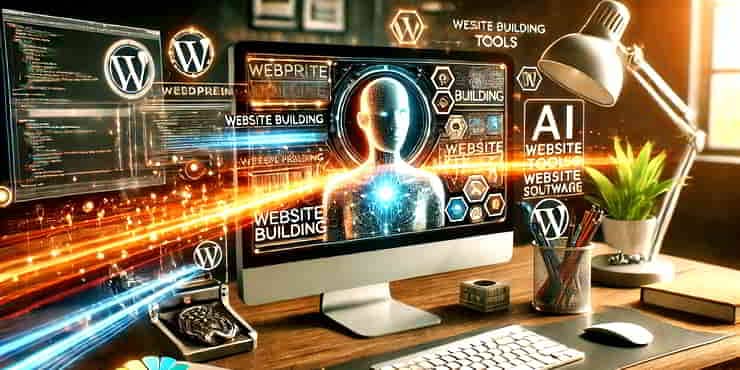The Art Of Building A Sustainable Business: Thriving As A Solopreneur

Estimated reading time: 6 Min
Running a business single-handedly is a dynamic art. Here’s all you need for building a sustainable business which is fundamental to a thriving solo business.
Unlike traditional entrepreneurs with teams, solopreneurs wear all the hats, managing everything from product development to marketing.
This approach is increasingly popular due to its flexibility and potential for personal fulfilment.
Many are drawn to solopreneurship for the freedom to follow passions and work on their terms.
Sustainability: The Heart of Long-Term Business
Sustainability in business means operating in a way that meets present needs without sacrificing the ability of future generations to meet theirs.
It encompasses environmental responsibility, social equity, and economic viability.
In business, it’s about using practices that are not only profitable but also ethical and eco-friendly.
Why Sustainability Matters for Solopreneurs
For solopreneurs, a mindset for sustainability is vital.
Building a sustainable business ensures longevity, resilience, and a positive impact on the community and environment.
It’s about creating a venture that can thrive in the long term, adapting to changes and challenges without sacrificing ethical standards or depleting resources.
Planning for a Thriving Solo Venture
- Your Business Mission
The foundation of your venture, it defines your purpose, values, and goals. A sustainable business mission should incorporate principles of environmental stewardship, social responsibility, and economic sustainability. This mission will guide your decisions and strategies, ensuring that every action aligns with your long-term vision. - A Robust Business Plan with Long-Term Goals
A business plan is essential. Your business plan should outline your vision, mission, and goals, with detailed strategies for achieving them. Long-term goals provide direction and help you stay focused on your mission. Your plan should include market research, financial projections, and a SWOT analysis (strengths, weaknesses, opportunities, and threats) to prepare for potential challenges. - Building a Resilient Business Model
A resilient business model can withstand market fluctuations and adapt to changing conditions. Diversify your products or services to reduce dependency on a single income source. Be flexible in your operations to quickly respond to market demands. Regularly review and update your business model to stay relevant and competitive.
Financial Stability: The Backbone of Your Business
- Effective Financial Management
Keep detailed financial records, separate personal and business finances, and regularly review your financial health. Use accounting software to streamline bookkeeping and stay on top of income, expenses, and taxes. - Diversifying Income Streams
Relying on a single income stream can be risky. Over time, diversify your revenue by offering different products or services, engaging in affiliate marketing, or providing consultancy. This not only increases your income potential but also protects you against market volatility. - Practical Budgeting and Saving Strategies
Budgeting helps you control expenses and save for the future. Create a realistic budget that covers all aspects of your business, including marketing, supplies, and emergency funds. Regularly track your expenses to ensure you stay within budget. Establish a savings plan to build a financial cushion for unexpected costs.
Eco-conscious and Ethical Business Practices
- Adopting Eco-Friendly Practices
Use sustainable materials, minimise waste, and opt for renewable energy sources. Implementing such practices not only benefits the environment but can also attract eco-conscious customers. - Operating with Ethical Principles
Ensure fair dealings with clients and suppliers, maintain transparency, and uphold ethical labour practices. This approach fosters a positive reputation and encourages long-term customer relationships. - The Ripple Effect
Your sustainable practices can inspire others and positively impact the community. Support local businesses, engage in community projects, and promote sustainability through your network.
Networking and Community Building: Growth Pillars
- Networking Opens Doors
Attend industry events, join professional groups, and actively participate in online forums. Building connections with other professionals can lead to partnerships that enhance your business. - Connecting with Fellow Solopreneurs
Form or join communities where you can exchange ideas, offer advice, and find encouragement. This shared support can be instrumental in overcoming challenges and achieving success. - Engaging with the Local Community
Participate in local events, sponsor community initiatives, and support local causes. These activities help build a loyal customer base and strengthen your business’s local presence.
Maintaining Work-Life Harmony
- Set Boundaries
Designate specific work hours and stick to them, ensuring you make time for family, hobbies, and relaxation. This balance prevents burnout and enhances productivity. - Prioritise Self-care
Regular exercise, a healthy diet, and mindfulness practices can improve mental well-being and overall health. Prioritise self-care to stay motivated and focused on your business goals. - Effective Time Management
Effective time management includes prioritising tasks, setting realistic deadlines, and avoiding multitasking. Use tools like calendars, to-do lists, and time-tracking apps to stay organised and efficient.
Your Digital Presence: A Key Asset
- Leveraging Digital Tools
Use project management software, CRM systems, and marketing automation tools to enhance productivity and customer engagement. These tools help you manage tasks, track progress, and maintain communication with clients. - Building a Strong Brand Identity
Create a cohesive brand image across your website, social media, and marketing materials. Consistent branding builds recognition and trust, making your business stand out. - Staying Up-to-date with Digital Marketing Trends
Digital marketing is constantly evolving. Stay informed about the latest trends, from SEO and content marketing to social media strategies. Continuous learning and adaptation are key.
FAQs
What is sustainable solopreneurship?
It involves running a solo business that prioritises long-term success, environmental responsibility, and ethical practices.
How can I ensure financial stability as a solopreneur?
Diversify income streams, manage finances meticulously, and practice budgeting and saving strategies.
What are some effective strategies for building a digital presence?
Leverage online tools, create consistent branding, and stay updated with digital marketing trends.
How can I maintain work-life balance as a solopreneur?
Set clear boundaries, prioritise self-care, and implement effective time management strategies.
What are some eco-friendly practices I can incorporate into my business?
Use sustainable materials, reduce waste, opt for renewable energy sources, and support local suppliers.
What’s the best platform for learning to build a sustainable business online?
Wealthy Affiliate provides everything you need to learn, grow and sustain an online business.
Summary: Building a Lasting Legacy
Building a sustainable business of any kind involves planning for longevity, ensuring financial stability, adopting eco-friendly practices, and maintaining ethical operations.
Networking, community building, work-life balance, and a strong digital presence are also vital.
The benefits extend beyond personal success, contributing positively to society and the planet.
Aspiring solopreneurs should embrace sustainability as a core principle for lasting success.
If you have any questions, or comments to make, please use the comments or the contact form and remember to share!
😉
Richard
Useful Resources for Sustainable Solopreneurship
Recommended Books and Articles
- “The Lean Startup” by Eric Ries
- “Small Giants” by Bo Burlingham
- “Sustainable Business Development” by David L. Rainey
- Articles from Harvard Business Review on sustainable business practices
Online Courses and Workshops
- Coursera’s “Sustainable Business Strategy” by Harvard Business School
- Udemy’s “Financial Planning for Solopreneurs”
- LinkedIn Learning’s “Becoming a Sustainable Business”
Communities and Forums
- The Solopreneur Society on Facebook
- Solo PR Pro Community
- Reddit’s r/solopreneur forum
These resources provide valuable insights, strategies, and support to help you build and sustain a successful solopreneurship.


![Are Wealthy Affiliate Hubs Revolutionising Website & Content Development In [year]? A futuristic and sleek digital workspace designed for website management and content creation - Wealthy Affiliate Hubs](https://ml0yvzumdtic.i.optimole.com/cb:k6B_.1fa14/w:740/h:370/q:mauto/https://solobusinessmind.com/wp-content/uploads/2024/12/A-futuristic-and-sleek-digital-workspace-designed-for-website-management-and-content-creation-Wealthy-Affiliate-Hubs740x370-O.jpg)



